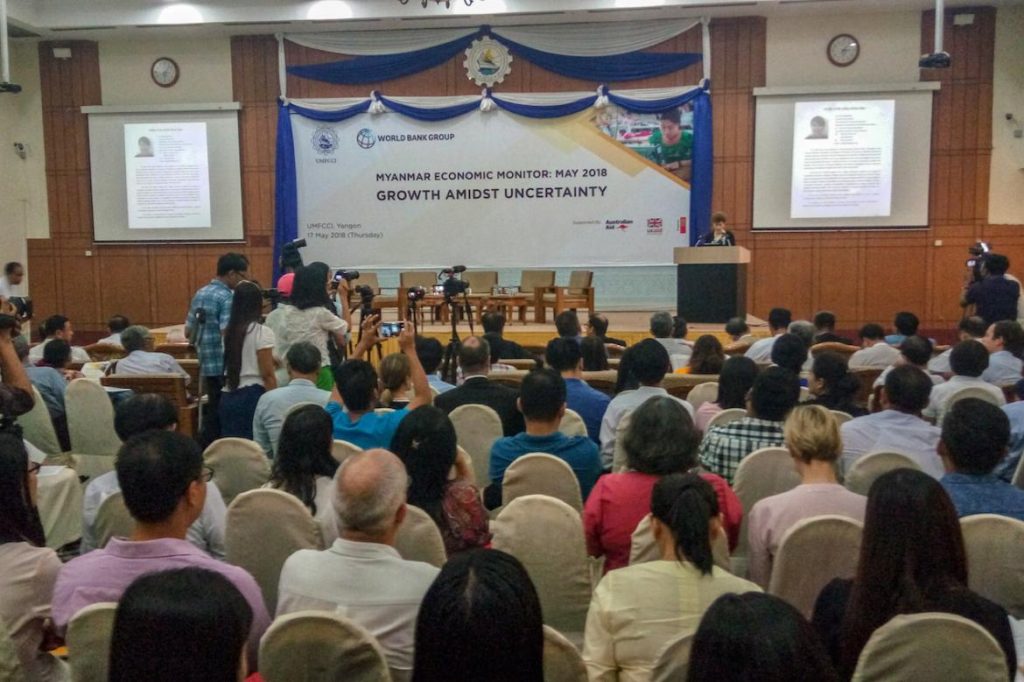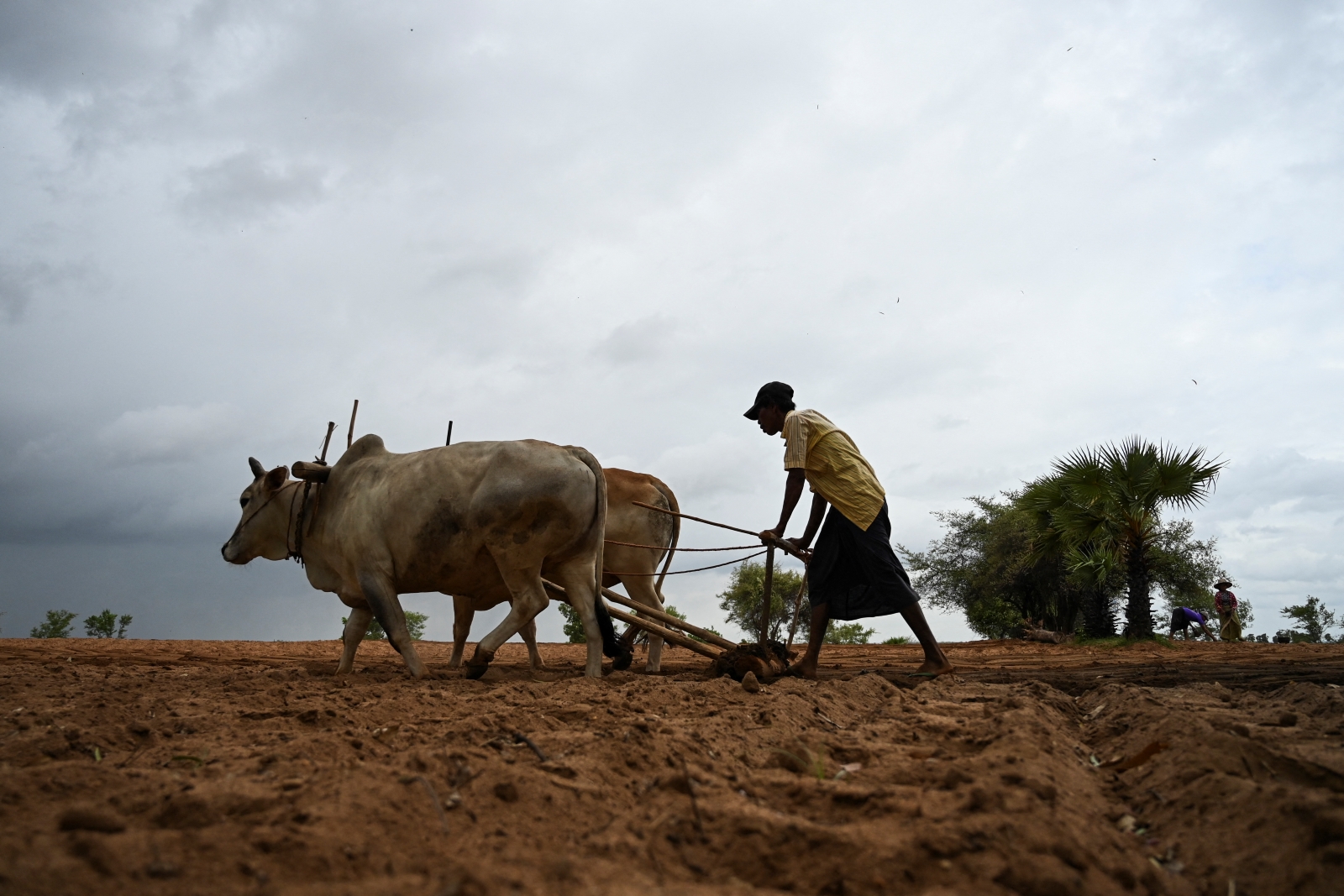By KYAW LIN HTOON | FRONTIER
YANGON – As the economy picks up amid global and domestic uncertainty, the World Bank has urged the government to address emerging risks that could impact business sentiment and weaken future performance, according to its new Myanmar Economic Monitor (MEM).
Real GDP growth increased to 6.4 percent in financial year 2017-18, from 5.9 percent the previous year, the World Bank said at the launch of the monitor on May 17 in Yangon. Inflation fell to 5.5 percent and fiscal and external balances improved, while the kyat appreciated slightly on strong exports and foreign direct investment flows.
“The pick-up in growth and improvement in the macroeconomic situation are encouraging,” said Ms Ellen Goldstein, World Bank director for Myanmar, Cambodia, and Lao PDR.
“The government is also finalizing its Myanmar Sustainable Development Plan, which we hope will serve as a platform to accelerate economic reforms, modernize the financial sector and make progress in resolving conflicts that jeopardize inclusive and sustained growth”
Support more independent journalism like this. Sign up to be a Frontier member.
The pick-up in GDP growth was driven by a recovery in agriculture and especially crop production, improved manufacturing performance, and strong services growth, despite a slight slowdown due to tourism and banking sector uncertainties, according to the report.
The report indicates a favorable outlook with growth expected to increase to 6.8 percent in 2018-19 and inflation expected to ease further to 4.9 percent. The current account deficit is forecast to remain stable at 4.7 percent due to sustained trade growth.
“For the economy to sustain its positive momentum amid intensifying risks, it needs well targeted public investments and private sector activity encouraged by a stable macroeconomic environment and policy certainty,” said Mr Hans Anand Beck, World Bank lead economist for Myanmar.
“Providing and pricing electricity well, implementing the companies act, servicing tax payers, and securing the environment for financial transactions, can help in this regard.”
In addition to the regular economic review and outlook, the report contains deeper topical analysis on reforms needed to support inclusive growth.
It suggests measures to boost investment including FDI at a time when investors perceive a slowing pace of government reforms and risks from the Rakhine crisis, amplified by concerns about global trade policy and volatile commodity prices.
A joint paper with the Central Statistical Organization describes the recent evolution of the private sector and shows how ownership, firm size and stable electricity provision affect firm productivity.
Finally, the report explains how a sound, efficient, and inclusive financial system can play a critical role in creating and sustaining a market-based economy for inclusive growth.







